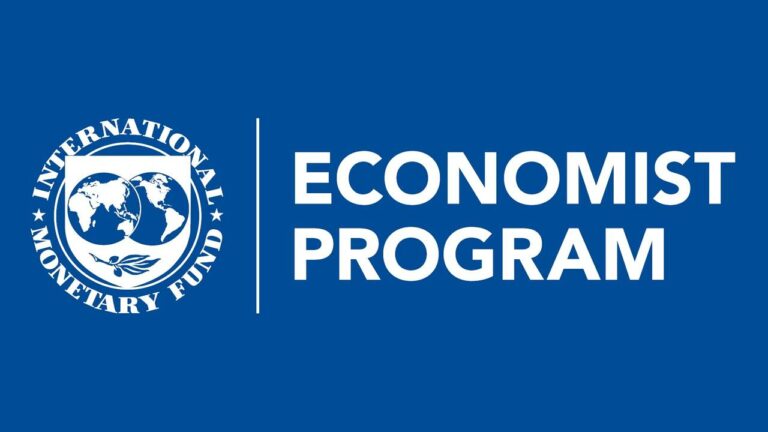Deadline: 7th December 2023
Applications are now open for the Economist 2023/2024 Programme of the International Monetary Fund (IMF) . Joining the IMF as part of its Economist Programme (EP) will boost your career by giving you hands-on exposure to a cross-section of the IMF's work and an opportunity to apply your research and analytical skills directly to the essential policy work that affects our 190 member countries.
They are looking for young economists who want to have an influence on the global scene and who can bring the latest in economic thinking and multidisciplinary approaches to help them tackle the main global economic challenges, such as promoting global monetary co-operation, ensuring financial stability, boosting international trade. These include promoting employment and sustainable economic growth and reducing poverty.
Programme details
The EP offers a rounded experience of the IMF's work and provides a unique foundation for an exciting and rewarding career as an economist. During the three-year programme, you will move through two departmental assignments, joining economic teams working on regional and country-specific surveillance, as well as fiscal, monetary, balance of payments, debt or related issues. This is not a trainee position and, from the outset, you will be given real work and real responsibilities as an IMF economist. This could include policy development, country or regional operational work, research and capacity building, and teaching.
By the end of the programme, the IMF hopes that you will be as enthusiastic about their work as they are and that you will choose to stay and build a long-term career as an IMF economist.
Eligibility
You need to be:
- Have a recent doctorate or be within one year of completing your doctorate in a relevant field of study;
- Citizen of one of the IMF member countries;
- Under 34s when they join the IMF's EP programme.
Application
The shortlisted candidates will be interviewed between October and January, with offers being made at the beginning of February. The selection process consists of multiple stages, which can take place in parallel with each other.
Below is a summary of the four main stages:
- If your application is short-listed, you will be invited to a 30-40 minute preliminary interview, during which you will be asked to provide a high-level overview of your research work and answer questions on economic topics related to the IMF's work. and on your interpersonal and communication skills. The dates of the IMF campus visits will be added here .
- After the preliminary interview, you may be asked to forward your most recent academic transcript from your doctoral programme, provide three academic references (references cannot be from current IMF staff) and submit a research article (preferably of publishable standard) or one or two chapters of your dissertation.
- Successful candidates this year will be invited to a face-to-face interview with a panel comprising two or three senior IMF economists and a Human Resources officer. The interview will follow a similar format to the preliminary interview, focusing on your knowledge of monetary, fiscal, balance of payments and financial sector issues and your behavioural skills, to provide a more in-depth assessment of your analytical skills, judgement, oral communication and interpersonal skills, knowledge of macroeconomics and related areas, and ability to convey complex issues in a logical and structured manner. In addition to the panel interview, you will also be required to take a 40-minute online psychometric assessment and a 90-minute written exam. The psychometric assessment is designed to identify preferred skills and behavioural approaches,
- Once the panel interviews have been completed (usually at the end of January), all candidates who have reached the panel interview stage will be forwarded to an internal committee of senior staff for review and this committee will make the final selection. The committee will analyse all seven assessments (in bold above) with the highest weighting given to the panel interview and the review of the research paper.
For more information, visit IMF Economist Programme .


